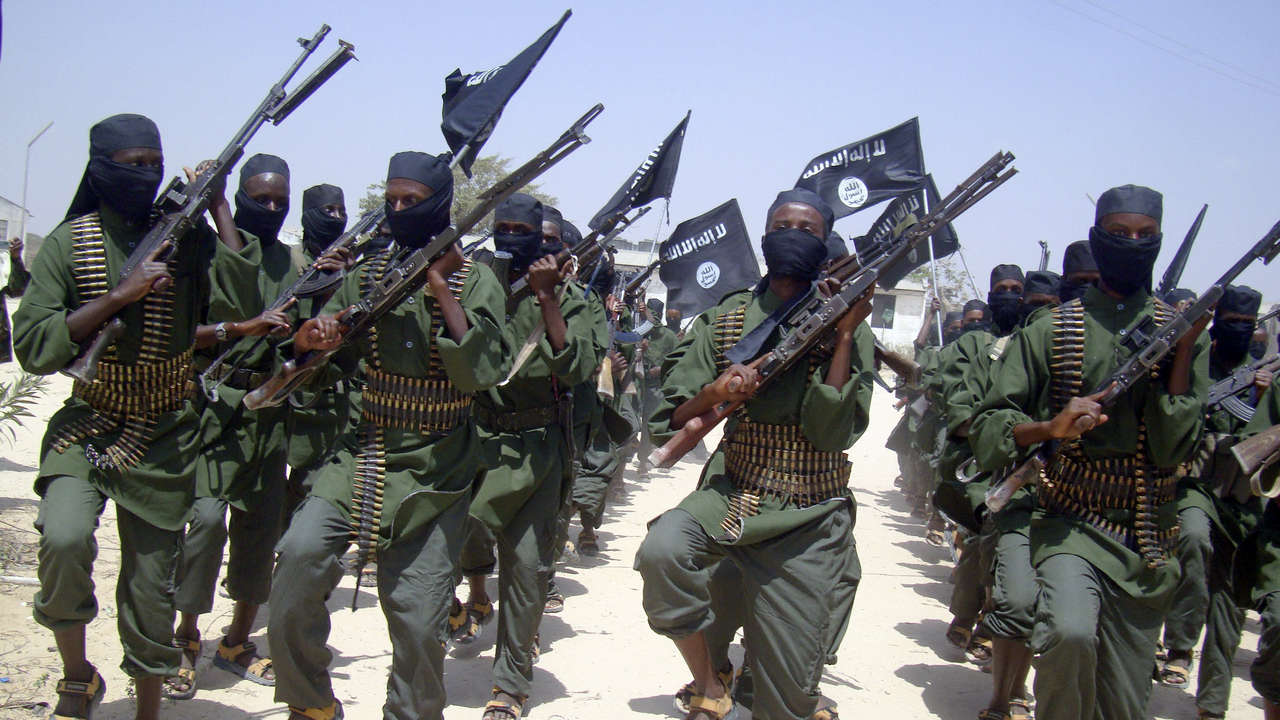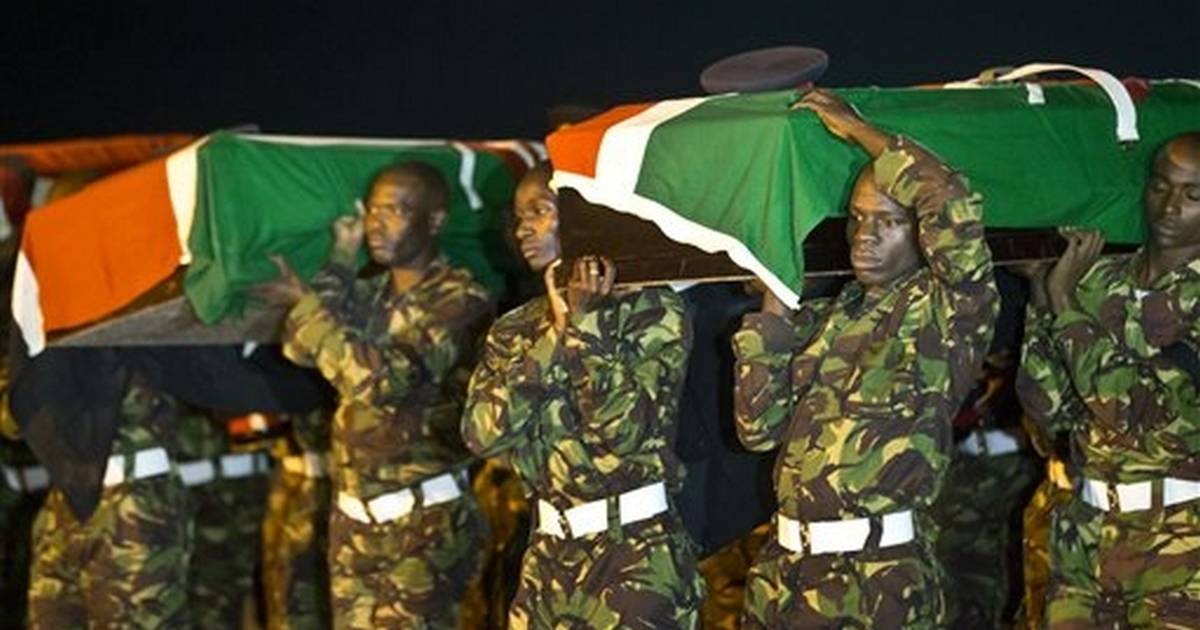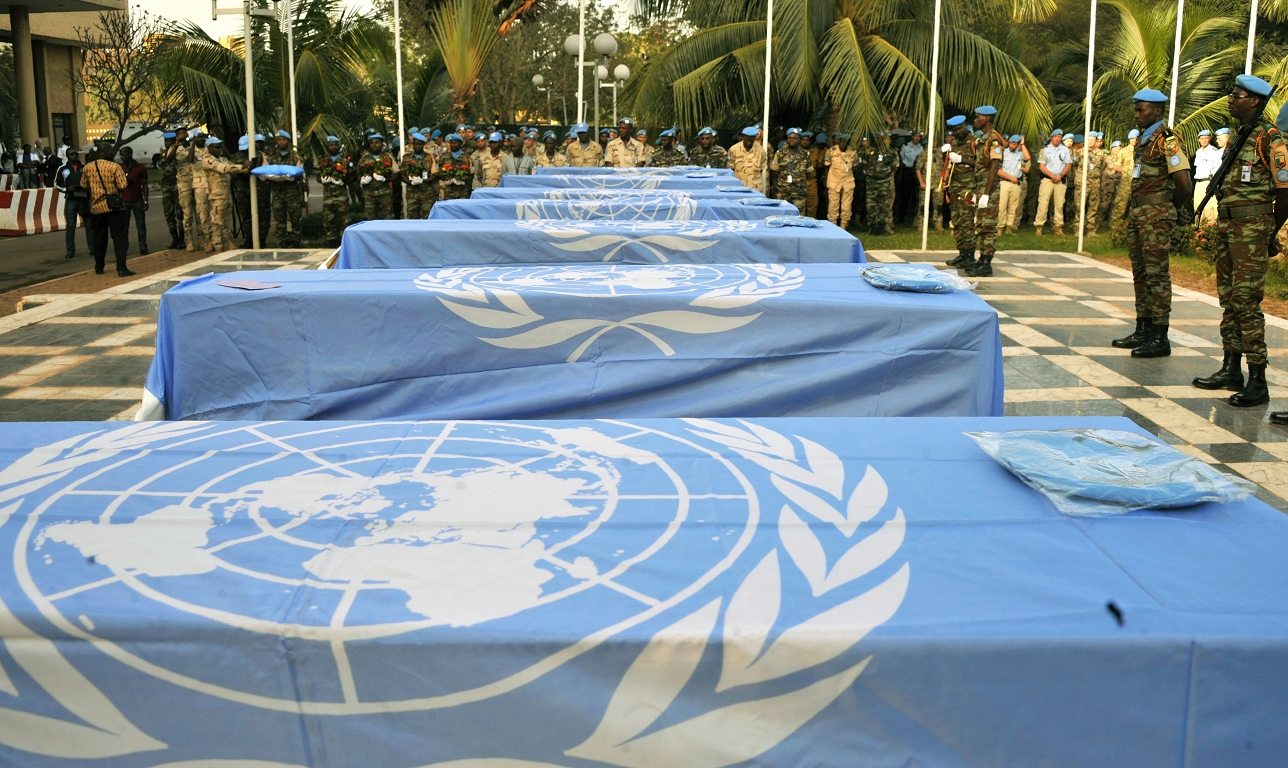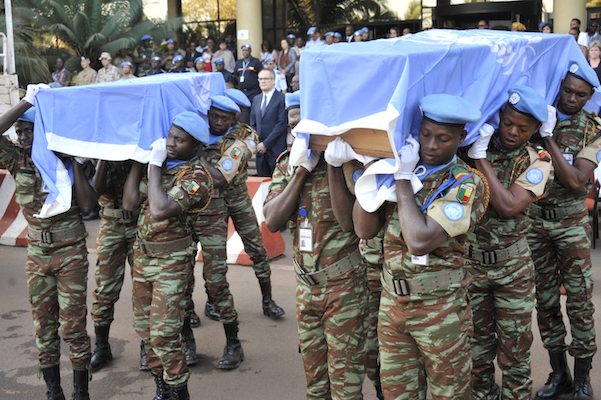[This article was originally published on Eeben Barlow’s Military and Security Blog on September 20th, 2016. It is reprinted here in its entirety with permission of the author. Images and video have been added by the Editors.]
As Africa drags itself ever closer to the abyss, one would think that governments would be paying a lot more attention to strategic intelligence, and the current and developing strategic threats, along with strategic forecasting. This sadly appears not to be the case as it is evident that erroneous intelligence impacts greatly on current thinking and strategies—especially when the initiative has been lost and the tipping point is approaching.
If governments continue to base their strategic predications on thumb-sucking, misinformed media articles and ‘opinion pieces’, ill-informed advisors, and incorrect narrative-driven assumptions, instead of verified and credible strategic intelligence, tragedy awaits them as they place their national and vital interests at risk. The richer they are in resources, the greater the risk and the subsequent looming tragedy.
The rise of armed anti-government forces, radical religious terror groups, proxy forces, domestic and transnational organised crime, planned regime-change actions, mass perception shaping programmes via the mainstream media and so forth, is evident that intelligence failures at the strategic level are increasing. The continued lack of intelligence is costing—and will still cost—African governments dearly in the future as they will be unable to prepare and posture themselves correctly to meet the threats. Nor will they be able to develop a coherent strategic intent as the threat and its intentions will be unknown … let alone safeguard their interests.

The integrity and survival of the state along with the longevity of government requires a reliable, robust, and continuous strategic intelligence input. This is essential to enable the development and adjustment of the National Strategy. The National Strategy, in turn, must give the government direction and guidance on how it intends to position itself on the national, regional, continental, and international stages. It is also essential to give forewarning of real, potential and predicted violent and non-violent threats against the state—and the obstacles it will face along the way in countering the threats.
The National Security Strategy is similarly guided by strategic intelligence and strategic forecasting and/or predictions, and its impact is felt across all pillars of the state. However, threats against the state are not only of a military or armed nature. They include planned non-violent attacks such as economic sabotage, political blackmail, coercive diplomacy, perception manipulation, international criminal court threats, trade embargos, resource and state capture, and so forth. These threats are diverse, multi-dimensional and very seldom, if ever, appear as a singular threat. They develop over time and are never spontaneous.

Without strategic intelligence, the state will have no pre-warning of the approaching threats—or their intentions—that will attack it on numerous fronts. Nor will it understand—or be likely to withstand—foreign-backed and sponsored regime change actions through violent and non-violent means. These attacks all have only one aim: the installation, by any and all means possible, of a government that will be sympathetic to the regime change sponsors and that will surrender its resources as a token of thanks.
Countries such as Libya, Egypt, Tunisia, Nigeria, Central African Republic, S Sudan, DRC, Ivory Coast, Burkina Faso, Cameroon, and Mali to name a few have all found themselves under sustained attack without having had any home-grown intelligence pre-warning. Despite several of the aforementioned countries being cautioned prior to the attacks, they chose instead to be blind and discard the dangers in the misguided belief that they may not be targeted or that the intelligence was wrong. In some instances, they were advised by ‘allies’ that the intelligence was false. Several other countries are also on the target list but are not currently viewed as priorities—yet. However, in every case, the developing intentions were and are—if anyone was or is willing to look—as clear as daylight, yet they were and are seemingly unable to connect the dots.

Reliance on the media, ill-intentioned ‘allies’, misinformed advisors, and public perceptions does not constitute intelligence at any dimension or level. The misguided belief that these sources will provide accurate and objective intelligence is a myth governments should dispel with absolute haste as these sources are usually coloured with disinformation. Instead, they must develop their own sources of intelligence and take responsibility for their own intelligence collection efforts and their intelligence failures.
Just because the intelligence does not match their ethnic, financial, racial, religious, or xenophobic narrative, it does not mean that it is wrong or false or even non-existent.
Unless African governments realise the true value of strategic intelligence and critical role it plays in guiding and shaping their national and security strategies and defending their national and vital interests, they will continue to lead themselves—and their people—down the path of self-destruction.
Eeben Barlow, for Lima Charlie News
Eeben Barlow saw active service in conventional, clandestine and covert units of the South African Defence Force, where he served as Lieutenant-Colonel. He was founder of the Private Military Company (PMC) Executive Outcomes in 1989 and was its chairman until 1997 where he trained SADF Special Forces in covert operations. Until its closure in 1998, EO operated primarily in Africa helping African governments that had been abandoned by the West and were facing threats from insurgencies, terrorism and organised crime. EO also operated in South America and the Far East. Barlow was appointed Chairman of STTEP International in 2009, which was hired by the Nigerian government in 2015 to provide military training for the offensive against Boko Haram, and he also lectures at military colleges and universities in Africa on defence, intelligence and security issues. Prior to the STTEP International appointment, he served as an independent politico-military advisor to several African governments.
Lima Charlie provides global news, insight & analysis by military veterans and service members Worldwide.
For up-to-date news, please follow us on twitter at @LimaCharlieNews
In case you missed it:



![Image [Women's Day Warriors - Africa's queens, rebels and freedom fighters][Lima Charlie News]](https://limacharlienews.com/wp-content/uploads/2019/03/Womens-Day-Warriors-Lima-Charlie-News-480x384.jpg)
![Image Looming debt trap in sub-Saharan Africa [Photo: James Morgan]](https://limacharlienews.com/wp-content/uploads/2018/03/wwf_ocean_06-480x384.jpg)
![Image Cameroonian refugees rush to Nigeria to escape conflict between English speakers and French speakers [Image: UNHCR / Elizabeth Mpimbaza]](https://limacharlienews.com/wp-content/uploads/2018/01/Cameroonian-refugees-rush-to-Nigeria-to-escape-conflict-between-English-speakers-and-French-speakers-480x384.jpg)
![Africa’s Elections | In Malawi, food, land, corruption dominate [Lima Charlie News]](https://limacharlienews.com/wp-content/uploads/2019/06/Malawi-election-Food-land-corruption-480x384.jpg)
![Image The Rwandan Jewel - Peacekeepers, Conflict Minerals and Lots of Foreign Aid [Lima Charlie World]](https://limacharlienews.com/wp-content/uploads/2019/03/Rwanda-Jewel-480x384.jpg)
![Image Zimbabwe’s Election - Is there a path ahead? [Lima Charlie News]](https://limacharlienews.com/wp-content/uploads/2018/09/Zimbabwe’s-Election-Is-there-a-path-ahead-Lima-Charlie-News-480x384.png)
![[Silver lining for China in Zimbabwe’s violent elections][Lima Charlie News]](https://limacharlienews.com/wp-content/uploads/2018/08/Screen-Shot-2018-08-02-at-12.51.35-PM-480x384.png)
![Image [Women's Day Warriors - Africa's queens, rebels and freedom fighters][Lima Charlie News]](https://limacharlienews.com/wp-content/uploads/2019/03/Womens-Day-Warriors-Lima-Charlie-News-150x100.jpg)
![Image Looming debt trap in sub-Saharan Africa [Photo: James Morgan]](https://limacharlienews.com/wp-content/uploads/2018/03/wwf_ocean_06-150x100.jpg)